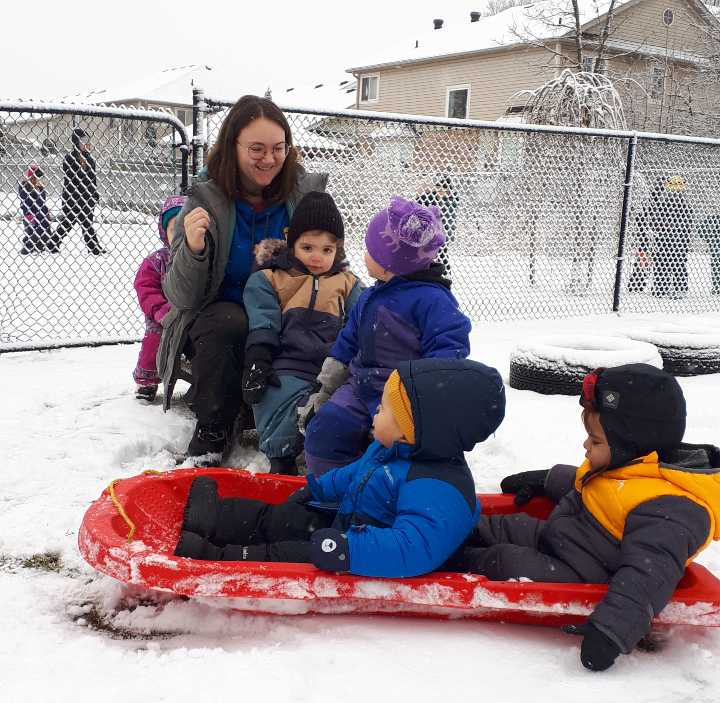
...Because Happy Educators Make Happy Learners!
Hello, education enthusiasts, and welcome to the enlightening and often forgotten realm of supporting educator well-being. Today, we're diving into the world of "How Does Learning Happen?"—Ontario's not-so-secret guide for nurturing young minds. But hold on, because we're about to uncover the truth: the secret sauce isn't just in the loose parts, mud kitchens, and materials; it's in the joy and well-being of the educators!
Let's face it, being an early childhood educator is a rollercoaster of emotions—some days you're high on the success of a well-executed day, and other days you're questioning if you should've taken up lion taming instead. That's why it's time to put the spotlight on the real MVPs of early childhood education: the educators.
The Well-being Wiggle:Imagine a dance floor where educators groove to the rhythm of well-being. Leaders, it's time to get your dancing shoes on! Create a culture where well-being isn't just a buzzword but a boogie-down lifestyle. Encourage educators to take well-deserved breaks, engage in self-care, and, if necessary, break into spontaneous interpretative dance sessions. Happy feet, happy minds!
We would encourage you to ask your team questions at your next staff meeting: “What would a culture of well-being look like here?” This can provide a great springboard for dreaming, innovation, and change. From here, we can put together concrete strategies that will cultivate this culture of well-being within our spaces that is contextually relevant. For us, this has come to life as a strategic plan with our values, goals, and commitments clearly outlined to describe the world we wish to live in. For educators and leaders, this has been such a key tool to support recruitment and retention as it tells a message to all about what we are working towards.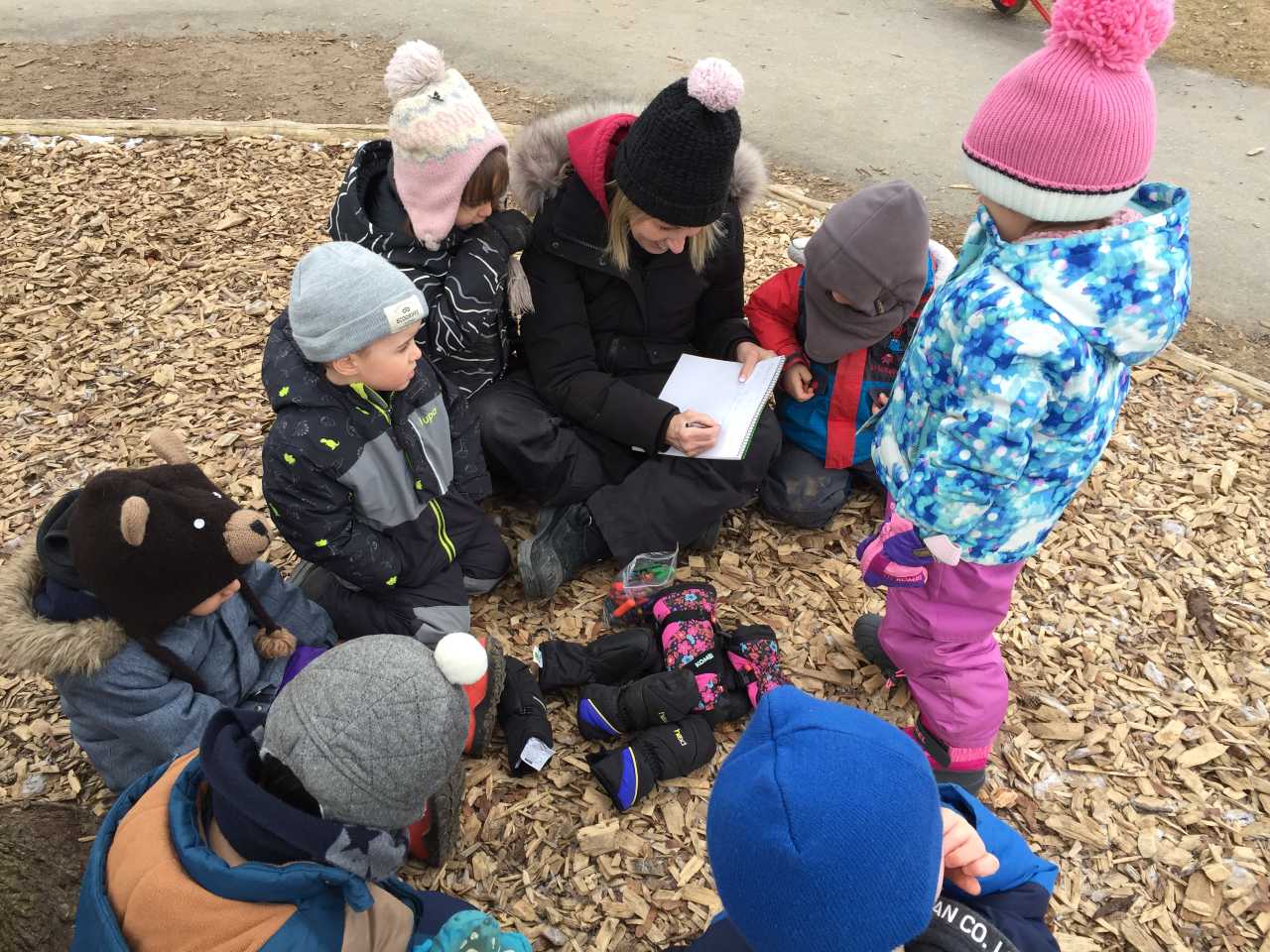
Engagement shouldn't be a one-way street. It's not just about captivating the attention of the little people; it's about keeping the educators hooked too! Leaders, spice up professional development with engaging opportunities for self-reflection. Consider the principles from How Does Learning Happen? And how these values alongside the offerings you create for educators. Do educators get to connect, engage, and PLAY?
Some things that you can consider doing tomorrow can include:
- Switching up your morning routines and check-ins. Aside from saying “good morning” do you use these morning check-ins to cultivate pedagogical thinking? Simply asking "What is your intention for the day? "can go a long way in cultivating an engaged environment and shows people that you care about them.
- Creating communities of practice: Have you ever thought of your staff room as a place to cultivate engagement around what we value? Add a few quotes and photos into the space and ask the educators…how does this have you thinking about the work that we do?
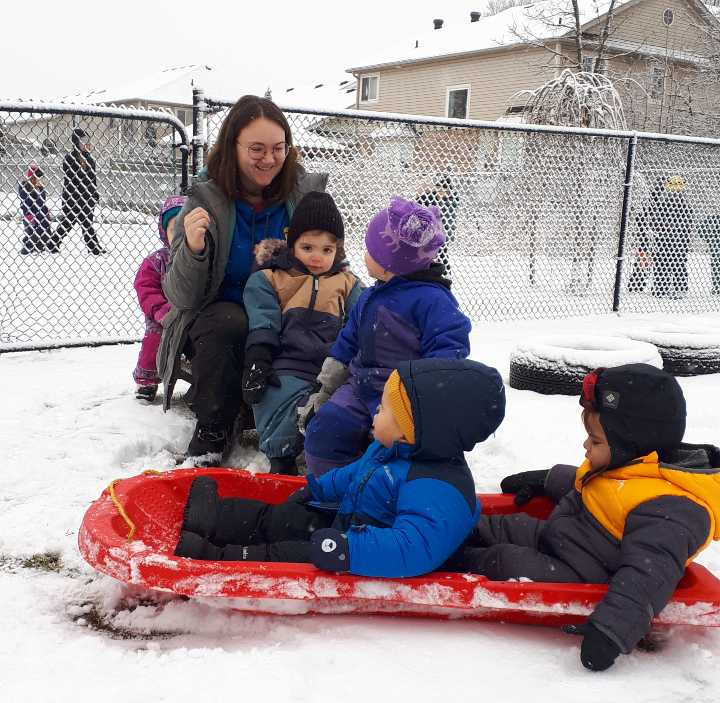
Picture this: a staff room where everyone's a VIP. Belonging is the VIP pass to a harmonious learning environment. Encourage collaboration amongst classrooms, celebrate diverse backgrounds, and create a space where educators feel like they're part of an exclusive club (minus the secret handshakes and passwords). Because when educators feel like they belong, magic happens in the classroom!
If you are unsure where to start, here are some ideas:
- Cross-Classroom Collaborative Projects: Facilitate collaborative projects that involve educators and children from different classrooms or age groups working together on shared goals or themes. For example, educators could organize a school-wide art exhibition where children from different classrooms collaborate to create artwork inspired by their diverse backgrounds and experiences.
- Random Acts of Kindness Project: Start a #challenge with your team to see who can notice and find as many random acts of kindness as possible. Remember, what we pay attention to…GROWS. If we feel like our communities lack kindness or gratitude, we can be the first ones to start a revolution.
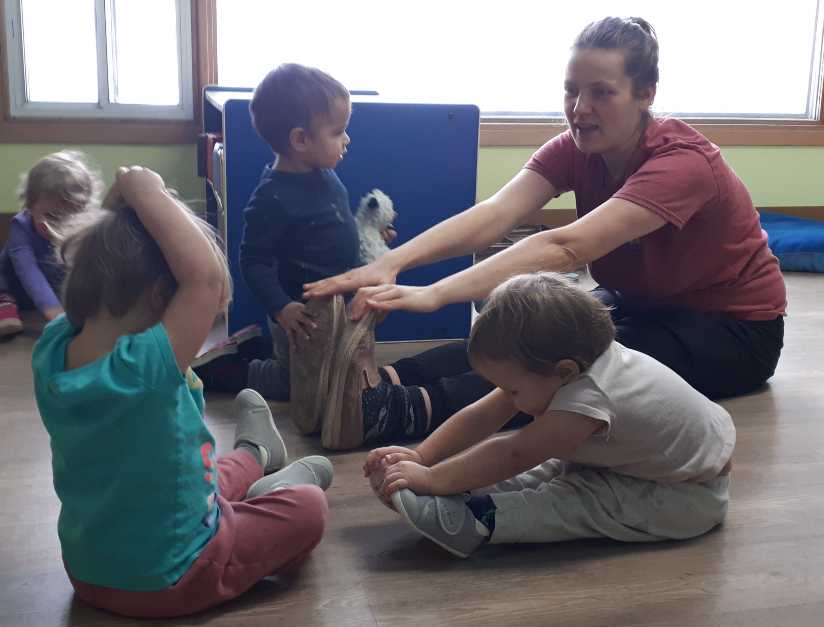
Let's unleash the inner Picasso in every educator! "How Does Learning Happen?" knows that authentic expression is the key to a vibrant learning community. Leaders, encourage educators to bring their creative flair to the programs. Let’s start by being curious alongside educators to explore their unique gifts. This can be done through daily check-ins or staff meetings.
Here are some places to start:
- Establish Regular Reflective Practice Sessions: Leaders can organize regular reflective practice sessions where early childhood educators can share their experiences, challenges, and successes openly. These sessions can provide a safe space for educators to express themselves, seek advice, and learn from each other. Leaders can facilitate these sessions by posing thought-provoking questions, encouraging active listening, and ensuring confidentiality. By fostering a culture of reflection and open communication, leaders empower educators to express themselves authentically and contribute to continuous improvement in their practice.
- Promote PLAYFUL and Creative Professional Development Opportunities: Leaders can support expression among early childhood educators by offering creative professional development opportunities tailored to their interests and strengths. Consider the values that you wish for educators to grow with children and see how these values can be reflected in the opportunities you create with educators.
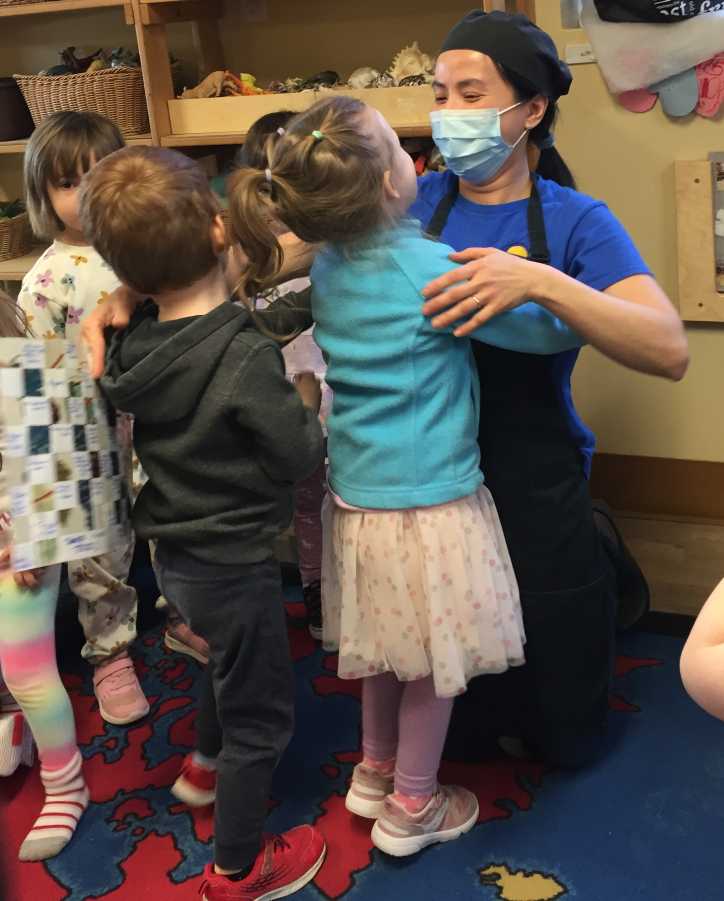
Laughter truly is the best medicine, especially in the sometimes chaotic world of early childhood education. Create a laughter-filled environment where humour is not only welcomed but encouraged. Consider reflecting on the spaces for educators…the office or the staff room. Examine this space and ask, “Does this space reinforce the values we are trying to grow here?” So often we ask this question of educators and their spaces with children but when we look closely at the spaces offered for educators they are designed with minimal intention. I get it…it’s a lot of work and this is something that we still have a lot of work to do in our spaces for educators. The joy about pedagogical practice is that is it a journey that we will forever be on. One that requires a constant state of evolution. HOW FASCINATING!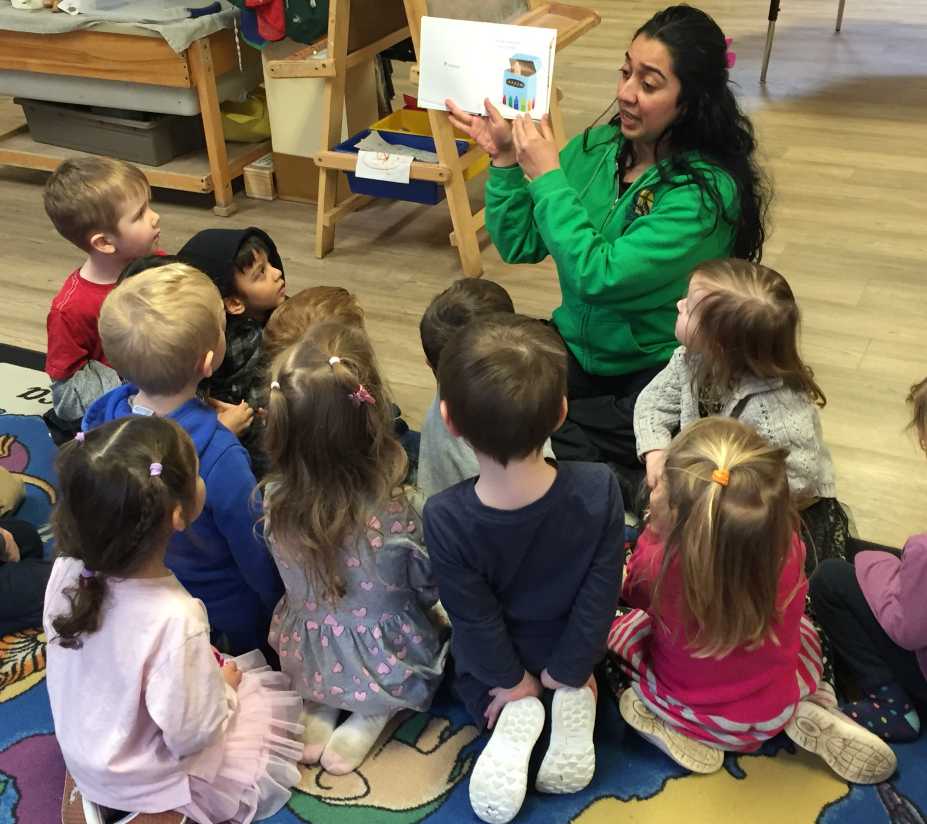
So, there you have it, folks—five tips to turn the education scene into a well-being dance. Because when educators thrive, children thrive.
We are sharing this because we see this as the answer to so many questions being posed about the early childhood educator staffing crisis. We have been on our own journey to prioritize belonging, well-being, engagement, and expression for our educators at Discovery Child Care and have seen the impact that this shift has had. We can share with certainty that there is so much fun, joy, love, passion, retention, and QUALITY on the other side. Children deserve thriving educators; leaders, this is your call to greatness.
Will you accept the offer to start a revolution from inside the 4 walls you spend each day? It starts with small changes and these small changes create BIG waves.
If you don’t know where to start, reach out to us today. We are always here to help you navigate the complexities of this work. From our own experiences and stories, we use professional learning to help thousands of educators all across the country reshape their cultures with values at the core. From here, we have seen firsthand how we can go from surviving to thriving. We believe that this work is the bedrock of our society. Let’s invest in our educators and create a culture prioritizing well-being, belonging, engagement, and expression. Our children deserve it! 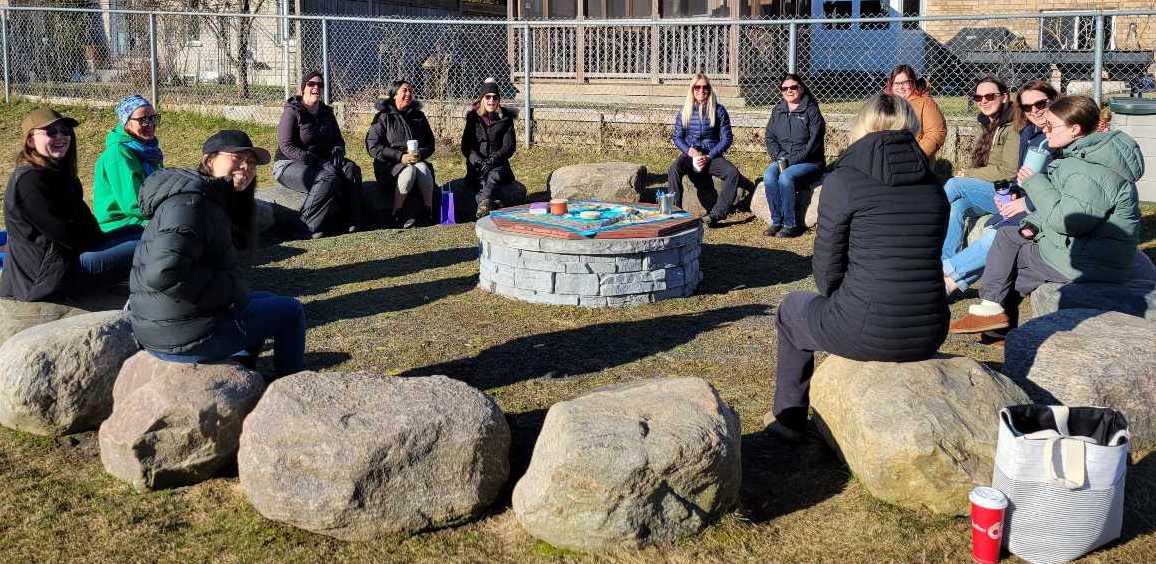
In the beautiful tapestry of early childhood education, let's not forget that the real stars of the show are the educators. So, let the well-being festivities begin, because when we prioritize the joy of teaching, we're not just shaping young minds; we're creating a laugh-out-loud legacy for the next generation of educators! Keep calm, teach on, and don't forget to dance your way to a brighter tomorrow!
